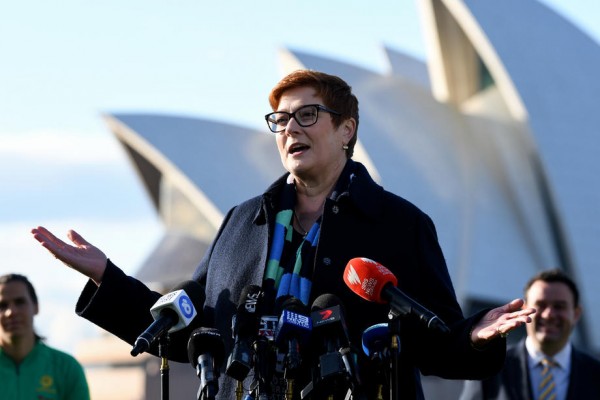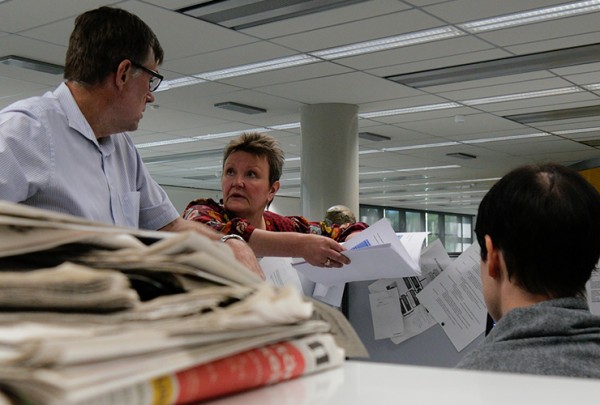The International Press Institute (IPI) today expressed concern at Australia’s attempt to force journalists to reveal their sources – an act that contravenes a fundamental journalistic right.
Five Australian journalists – Fairfax Media reporters Adele Ferguson, Richard Baker, Nick McKenzie and Philip Dorling and The West Australian’s Steve Pennells – were served subpoenas last month requiring them to divulge information about the identities of their journalistic sources. As the five reporters have refused to comply with the court’s orders, maintaining their ethical responsibility to protect their sources, they now face the possibility of criminal convictions, fines and imprisonment.
According to ABC news, the writs against Ferguson and Pennells were sought by Gina Rinehart, mining billionaire and single largest Fairfax shareholder. They were served in regards to Ferguson’s unauthorized biography “Gina Rinehart – The Untold Story of the Richest Woman in the World” and Pennells’ articles about Rinehart’s legal battle with her children over family inheritance.
The other journalists face possible court action from Helen Liu, a leading property developer, with regards to articles which alleged that former defence minister Joel Fitzgibbon had received a $150,000 AUD donation by Liu that he did not declare. In addition McKenzie and Baker were also served subpoenas regarding publications which revealed instances of alleged bribery in the Securency International Corporation.
Fairfax Media lawyer Peter Bartlett said that the current outbreak of legal actions, seeking to force journalists to reveal their sources, had been triggered by a court case initiated by Liu in 2012. In the legal proceedings the NSW Supreme Court held that a journalist’s promise to protect a source “is not a right or an end in itself” and it could be overridden “in the interests of justice”.
“The protection of journalists’ sources is both an ethical duty for journalists and a right under international law,” IPI Press Freedom Manager Barbara Trionfi pointed out. “IPI calls on Australia to recognize this fundamental journalistic right by dropping the cases against the journalists and introducing extensive shield laws at the national level.”
On the international level, the right of protection of sources stems from the right to freedom of expression protected under Article 19 of the Universal Declaration of Human Rights and the International Covenant on Civil Political Rights (ICCPR). The UN has stated on numerous occasions that journalistic sources must remain confidential unless there is an overwhelming public interest that overrides the right. According to former UN Special Rapporteur on the promotion and protection of the right to freedom of opinion and expression Abid Hussain the protection of sources is of “primary importance” if journalists are to “carry out their role as a watchdog in a democratic society” by being able to obtain information which would not be divulged otherwise.
In a statement on April 2, the Media Entertainment and Arts Alliance (MEAA) blamed the problematic nature of existing state laws regarding protection of sources, stating: “While many states have introduced shield laws, they vary widely on many different matters and the extent of their coverage.” At the beginning of April, the organisation launched a month-long campaign calling for greater press freedom and extensive shield laws on the national level, which would allow reporters to protect confidential sources.
In recent years, IPI has registered a number of legislation initiatives in Australia on the issue. In 2009 the Rudd government introduced a bill which provided a basic level of protection for the sources of journalists. In 2010, two further bills were introduced into the parliament, one by lower house member Andrew Wilkie and the other by Senator Brandis, which were very similar and gave reporters the right to refuse to provide evidence in order to protect the confidential source of their information. However, none of these proposed reforms was passed by Parliament. The only legislation that was implemented on the issue was the Evidence Amendment (Journalists Privilege) Act 2011 which allows the court the discretion of ordering that a journalist not be required to answer questions which might reveal a source.
In contrast to Australia, neighbouring New Zealand has strong and balanced protection for journalistic sources contained in section 68 of the Evidence Act 2006. The act contains a presumption of non-disclosure, allows members of the judiciary to order disclosure, but notes that in doing so they are required to consider the likely damage to the informant and the ability of the news media to access sources of facts.


